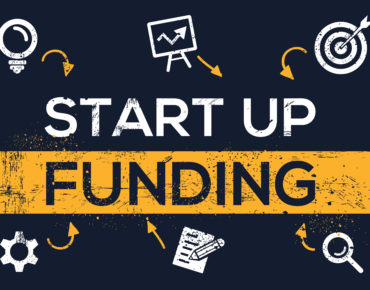AI Funding Roundup: Smaller AI Startups Continue to Steadily Bring in New Cash for Growth

When it comes to funding rounds for AI startups so far in 2021, there have been some sizable investments made. Scale AI brought in a $325 million Series E round in April, Chinese startup Enflame raised $278.5 million in January and Mythic AI unveiled a $70 million Series C round in May.
But not all AI funding investments are that large. There are still plenty of smaller AI startups, companies we may not typically hear about, getting new funding without the big headlines on a regular basis.
With that in mind, we here at EnterpriseAI put together this unscientific list of some other smaller AI startups which recently brought in new investments to show how venture capital is continuing to flow into this hot technology field.
Hawk AI, a Munich, Germany-based vendor that makes AI software to help banks, payment firms and other fintech businesses detect transactions that are linked to financial crimes, announced a $10M Series A round of financing on June 23, led by fintech specialist BlackFin Capital Partners.
The latest funding round will be used by the company to strengthen its European and U.S. footprint, while also expanding to Singapore and the United Arab Emirates, according to Hawk AI.
Another startup, Obviously AI, which builds a no-code application building platform for data analysts, unveiled $4.7 million in new seed funding on July 5 for their no-code platform for data analysts, according to a story by TechCrunch. The company had just received $3.6 million in funding in May as well.
The company says it will use the new money to expand in Asian markets including Japan, where it will partner with client Dai Nippon Printing (DNP), one of the country’s largest printing companies, on its go-to-market strategy, according to the story.
On June 30, Meltano, an open source data tools startup, announced the receipt of $4.2 million in new seed funding and its spin-off from DevOps platform vendor, GitLab. The new money will be used by Meltano to build out its team, accelerate product development and continue to strengthen the open source communities around Meltano and the Singer open source software it uses, according to a blog post by the company,
Also on June 30, Translated, which uses AI for professional language translation services, unveiled a $30 million funding round. $25 million came from private investment house, Ardian, while another $5 million came in from another investor.
Translated combines its proprietary adaptive neural machine translation software ModernMT with its network of 200,000 engaged linguists to deliver services to its business customers, according to the company.
Another startup, Standigm, announced a $10 million funding round on July 6 from Pavilion Capital for its specialized AI workflows for drug discovery. The company said it plans to use the money for clinical research on AI-driven drug compounds to strengthen its competitiveness in the global market.
A Pattern of Notable Investments, Say Analysts
Several industry analysts told EnterpriseAI that this pattern of modest transactions is a positive thing for the sector and for the tech marketplace.
"The new wave of relatively small investments in AI software and service companies signals the beginning of the shift in AI adoption, from the exclusive domain of massive e-commerce and cloud infrastructure to enterprise software solutions that deliver tremendous value to large and small companies alike," said Karl Freund, the founder and principal analyst of Cambrian AI Research. "This is an important step in the evolution of AI and is part of the democratization of AI technologies."
Another analyst, James Kobielus, the senior research director for data communications and management at TDWI, a data analytics consultancy, said that this collection of AI-related startup funding announcements is typical of what he has been seeing over the past year.
"Most funding announcements these days seem to have at least a smidgen of AI/ML in their proverbial secret sauce, to the point where it can be counterproductive to focus on that angle in covering them," said Kobielus. "Most money is chasing disruptive new ideas that can land with a splash and expand outward rapidly into the new unicorns."
But not all AI startups will have that large an impact, he said. "What is missing from these particular announcements is any sense that they are going to power a game-changing new application in edge, mobile, IoT, robotics, computer vision or other solution segments whose footprints in our lives are sure to grow," he said.
"There is a huge amount of pent-up investment money going into every conceivable niche opportunity now," said Kobielus. "To secure funding, most business plans now need to include some AI/ML theme as table stakes to show that the entrepreneurs in question understand that this is a competency they will need to stake their claim in, whatever market they have set their sights on."
Kobielus said he has a sense that the AI market is shifting toward a defensive crouch against the likelihood of increased regulation and oversight. "The disruption-seeking AI-powered unicorns of the past now come off in the popular mind as irresponsible over-reachers," he said. "So, what we are seeing is vendors across the board building up their 'responsible,' 'ethical' and 'transparent' AI practices and methodologies, while incorporating controls into their solutions."
In the end, though, "however necessary and noble-minded these 'responsible AI' initiatives are," he said, "it does not seem likely that any of them will result in game changing new AI-infused products that greatly improve how people live/work/entertain/etc."
Another analyst, Rob Enderle, principal of Enderle Group, told EnterpriseAI that AI, robotics, and quantum computing are "currently magnets for investors as we move into this fourth industrial revolution."
The tech world is at a level where focused AIs are viable and provide substantial value once adequately trained and implemented, said Enderle.
"The training is not trivial, allowing a small company to carve out a niche and create a differentiated product in a rapidly expanding market," he said. "Eventually, these firms are likely to be purchased as we exit the first phase of the development cycle and move to market consolidation around ever broader AIs until we reach the general-purpose AI goal. Then it will be a battle of giants."
Getting there, though, is likely at least a decade out, said Enderle, "though a savvy company may decide to start this consolidation early to gain a final market advantage. For now, focused AIs are in increasing demand and these firms are reflecting that dynamic."













